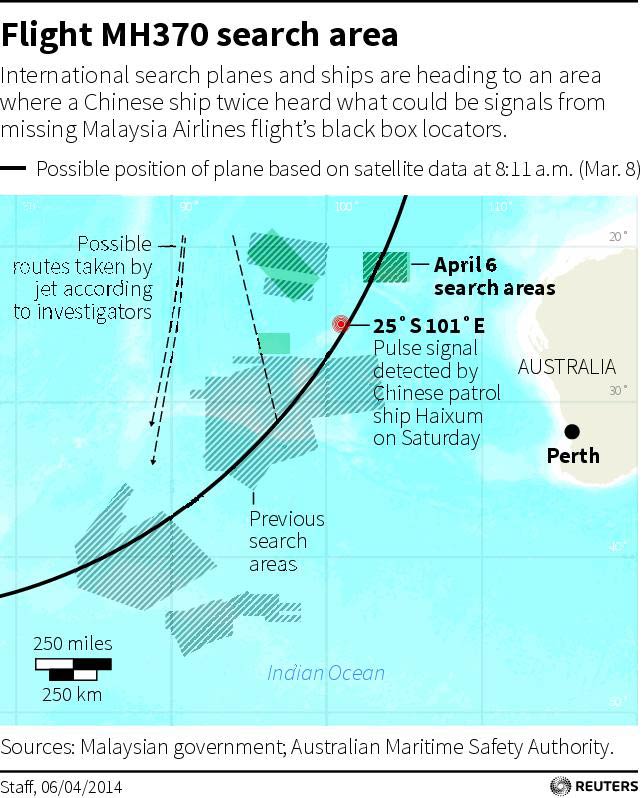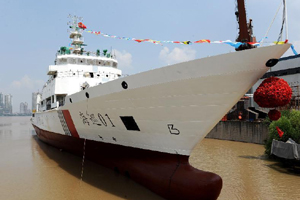 |
"The fact we've had two acoustic events in that location provides some promise, which requires a full investigation of the location," Houston said, but he stressed there was no conclusive evidence linking it to the Boeing 777.
Houston also noted that Australia's HMAS Ocean Shield, which is towing a US navy "pinger locator" was the best-equipped ship to pinpoint the flight recorders.
The Ocean Shield will continue to investigate a separate "acoustic event" some 300 nautical miles away in the original search zone 2,000 km (1,243 miles) northwest of Perth. A decision on whether to send it to the new area is likely to be made later on Monday, Houston said.
"We need to ensure before we leave any of those areas that this does not have any connection with MH370," Houston said.
China's discovery of pings was consistent with a correction to earlier satellite data which had again led investigators to refine the search area towards the southern part of the corridor, said Houston.
A US government source close to the MH370 investigation said on Sunday that the pings had not yet been validated. The source also said that no additional, trustworthy information had turned up to explain why the plane disappeared.
Cooperation
Authorities have not ruled out mechanical problems as a cause of the plane's disappearance but say the evidence, including loss of communications, suggests it was deliberately diverted.
Houston on Sunday said he was comfortable with the level of cooperation between search countries. "I'm very satisfied with the consultation, the coordination that we are building with our Chinese friends," Houston said.
However, he added that language was sometimes an issue and he had arranged for a Chinese liaison officer to join the Australian-led coordination centre.

 |
 |